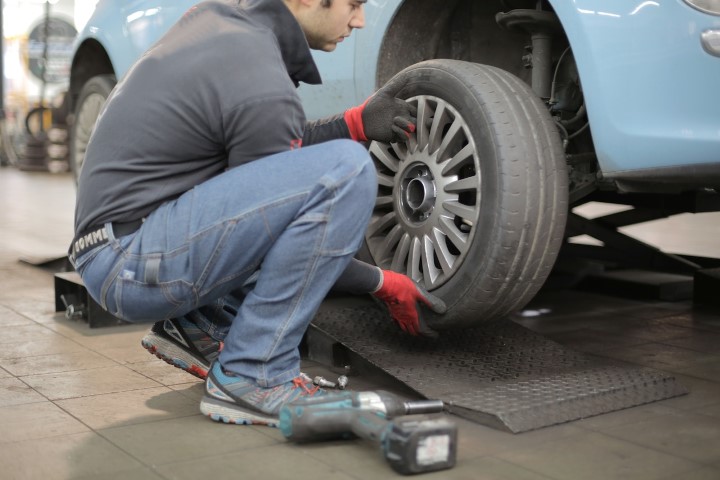 A vehicle is a significant investment, and like all investments, maximizing its value is a worthy endeavor. Whether you’re a seasoned car enthusiast or a newbie in the world of automobiles, understanding how to maintain your vehicle and knowing when to consider selling it can significantly impact the longevity and overall value of your ride. This article will delve into top tips for car maintenance and discuss the right moment to think about selling your vehicle.
A vehicle is a significant investment, and like all investments, maximizing its value is a worthy endeavor. Whether you’re a seasoned car enthusiast or a newbie in the world of automobiles, understanding how to maintain your vehicle and knowing when to consider selling it can significantly impact the longevity and overall value of your ride. This article will delve into top tips for car maintenance and discuss the right moment to think about selling your vehicle.
Maintaining Your Vehicle: The Fundamentals
Vehicle maintenance goes beyond fixing problems as they arise; it’s a proactive effort aimed at preventing those issues in the first place.
It involves a wide range of activities, from regular inspections to proper driving habits. With that in mind, here are some key areas to focus on:
Regular Inspection and Servicing
Routine car inspections are the first line of defense in maintaining your vehicle’s value.
Regular check-ups allow early detection of potential problems before they escalate into more costly repairs.
Essential components to inspect include the engine, brake systems, oil levels, and tire pressure.
Car Cleaning and Detailing
While the mechanics under the hood are the lifeblood of your vehicle, aesthetics play a significant role in maintaining its value.
Regular car cleaning and detailing preserve your vehicle’s exterior and interior, which can be particularly beneficial when you eventually decide to sell.
Adhering to the Manufacturer’s Guidelines
Following your vehicle’s owner’s manual can provide a roadmap for optimal maintenance.
Adherence to the manufacturer’s guidelines for oil changes, tire rotations, and recommended updates can ensure your vehicle runs smoothly and prolongs its lifespan.
Periodic Part Replacement
No matter how well you maintain your car, some parts will wear out over time. Regularly replacing items like air filters, spark plugs, brake pads, and timing belts can ensure your vehicle performs at its best. Similarly, when it comes to outdoor еquipmеnt likе coolеrs, it’s еssеntial to address wеar and tеar on componеnts to maintain optimal pеrformancе. If you notice any signs of dеtеrioration in your coolеr, it’s advisablе to buy Mammoth rеplacеmеnt coolеr parts to kееp it functioning еfficiеntly. This can prolong thе lifеspan of your coolеr and еnsurе it continuеs to providе rеliablе cooling for your outdoor advеnturеs.
Driving Habits
Lastly, how you drive significantly impacts your vehicle’s condition. Smooth acceleration and braking, avoiding potholes, and not overloading your car can help maintain its value.
Common Pitfalls to Avoid
On top of the fundamentals listed above, you can go one step further by being aware of some common mistakes that many owners make.
This can go a long way in maximizing your vehicle’s value. Here are a few pitfalls to steer clear of during your car ownership journey:
Ignoring Minor Issues
Ignoring minor car problems can lead to major issues down the line.
It’s easy to overlook that small oil leak or delay from replacing worn-out brake pads, but these seemingly insignificant issues can snowball into serious and costly repairs if not addressed promptly.
Neglecting Regular Car Washes and Detailing
Neglecting regular car washes and detailing is another common mistake.
Dirt, dust, and road salt can accumulate over time, causing damage to your vehicle’s exterior and interior.
Regular cleaning and detailing not only preserve your car’s aesthetic appeal but also help maintain its overall value.
Selling at the Wrong Time
The timing of selling your car can significantly impact the price you get.
Understanding the market dynamics, including supply and demand, seasonal fluctuations, and the impact of new model releases, can help you choose the optimal time to sell your car.
Undervaluing Your Car
Undervaluing your car is a surprisingly common pitfall when selling.
It’s crucial to research your vehicle’s current market value whilst also taking into consideration its condition and any customizations so you can price it accurately.
This will ensure you’re not leaving money on the table.
Knowing When to Sell Your Car
Determining the right time to sell your car can be challenging.
It involves understanding the current market value of your vehicle, the cost of repairs, safety features, and the vehicle’s fuel efficiency. Let’s explore these factors in more detail:
Market Value
The first step in deciding whether it’s time to sell your car involves understanding its current market value.
Several online resources can provide this information based on your car’s make, model, age, and condition.
Cost of Repairs
If your vehicle requires frequent or expensive repairs, it might be time to consider selling. When the cost of maintaining your car starts outweighing its value, selling becomes a viable option.
One thing to keep in mind is that few people will be willing to purchase a vehicle that requires lots of repairs. So selling before it gets too bad is the key.
Safety Concerns
Aging vehicles might have outdated safety features, putting you and your passengers at risk.
If your vehicle lacks modern safety features like anti-lock brakes, traction control, or airbags, it might be time to consider an upgrade.
Fuel Efficiency
Older vehicles often have poor fuel efficiency compared to newer models.
If you find yourself spending more at the gas station than your friends with newer model cars, it might be time to consider selling your car.
Selling Your Car
When it’s time to sell your car, there are several avenues to consider, including selling privately through an online platform, advertising locally, trading it in at a dealership, or a cash-for-car service like Alpha Cash for Cars.
These car-buying services can make the selling process hassle-free and ensure you get a fair price for your vehicle, particularly if it’s old or in poor condition which makes it harder to sell privately.
Conclusion
Maximizing your vehicle’s value involves regular maintenance, careful driving habits, and knowing when it’s the right time to sell.
While selling your car can be an emotional decision, particularly if you’ve spent time and money on customizations, it’s essential to consider factors like safety, repair costs, fuel efficiency, and the vehicle’s overall market value.
By balancing these factors, you can ensure that you’re maximizing the value of your vehicle and making the best decisions for your personal situation.










